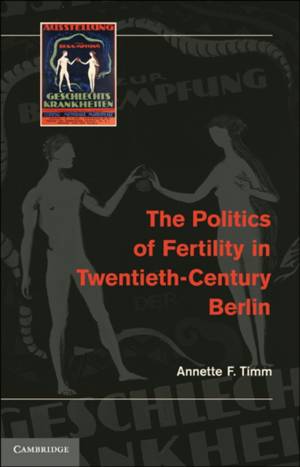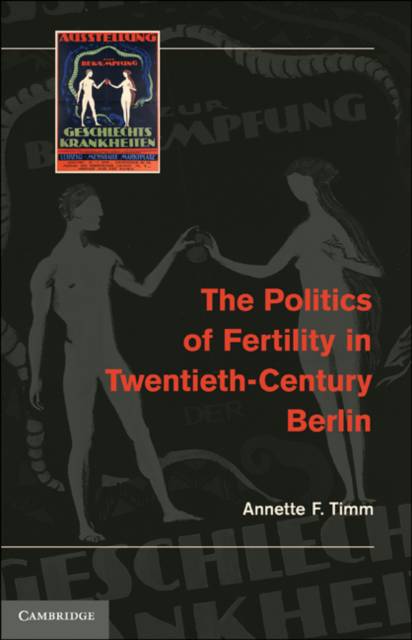
- Afhalen na 1 uur in een winkel met voorraad
- Gratis thuislevering in België vanaf € 30
- Ruim aanbod met 7 miljoen producten
- Afhalen na 1 uur in een winkel met voorraad
- Gratis thuislevering in België vanaf € 30
- Ruim aanbod met 7 miljoen producten
Zoeken
€ 206,45
+ 412 punten
Omschrijving
What impact does a falling birth rate have on the strength and vitality of a nation? Are citizens duty-bound to think about this question when they make reproductive and sexual choices? Few countries have grappled with these questions so intensely and with such dramatic consequences as Germany. The Politics of Fertility in Twentieth-Century Berlin tracks how fears of a declining population influenced reproductive and sexual health policy in four German regimes, from the end of World War I through the period of German division in the Cold War. A case study set in Berlin, the book examines local measures to control fertility-threatening venereal diseases and influence reproductive choices in marriage counseling clinics. It investigates how policies meant to encourage higher birth rates created feelings of belonging even as they infringed upon personal autonomy. The idea that sexual duty should be central to conceptions of citizenship only died with the changing technological and political circumstances of the late Cold War.
Specificaties
Betrokkenen
- Auteur(s):
- Uitgeverij:
Inhoud
- Aantal bladzijden:
- 374
- Taal:
- Engels
Eigenschappen
- Productcode (EAN):
- 9780521195393
- Verschijningsdatum:
- 30/08/2010
- Uitvoering:
- Hardcover
- Formaat:
- Genaaid
- Afmetingen:
- 160 mm x 236 mm
- Gewicht:
- 680 g

Alleen bij Standaard Boekhandel
+ 412 punten op je klantenkaart van Standaard Boekhandel
Beoordelingen
We publiceren alleen reviews die voldoen aan de voorwaarden voor reviews. Bekijk onze voorwaarden voor reviews.







